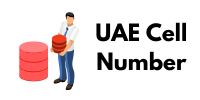Scraping and Consent
The fundamental flaw of “WhatsApp phone number extractors” stems from how they operate: by scraping data. This involves automated software collecting information from websites or applications without explicit permission from the data owner or the platform itself. While some tools might claim to extract nursing homes email list only “publicly available” numbers from groups you’re a part of, the act of mass extraction for unconsented use is a direct violation of WhatsApp’s Terms of Service and generally accepted data privacy principles. Automated data collection and the use of unofficial tools. Engaging in such activities can lead to immediate and severe consequences, including temporary or permanent bans of your WhatsApp account(s). For businesses relying on WhatsApp for legitimate customer communication, such a ban can be catastrophic. This lack of consent is the ethical and legal red flag, turning potential outreach into unsolicited spam.
Legal and Ethical Minefields
The use of WhatsApp phone number extractors plunges businesses and individuals into a legal and ethical minefield. These laws, influenced by global standards like GDPR, emphasize:
Violating! these principles! by using high chance of getting it opened scraped lists can result in substantial fines, legal! action from individuals or regulatory bodies, and severe reputational damage. Beyond the law! the ethical cost is immense. Unsolicited messages are perceived as intrusive and annoying, leading to negative brand perception, customer burkina faso business directorycomplaints, and a complete erosion of trust.
The Futility of Unsolicited Outreach
A list acquired through such means is inherently flawed:
